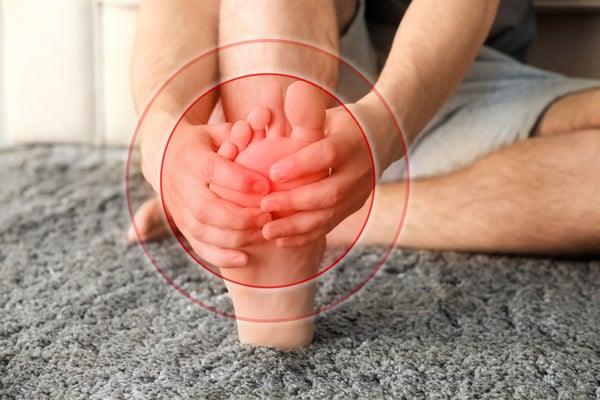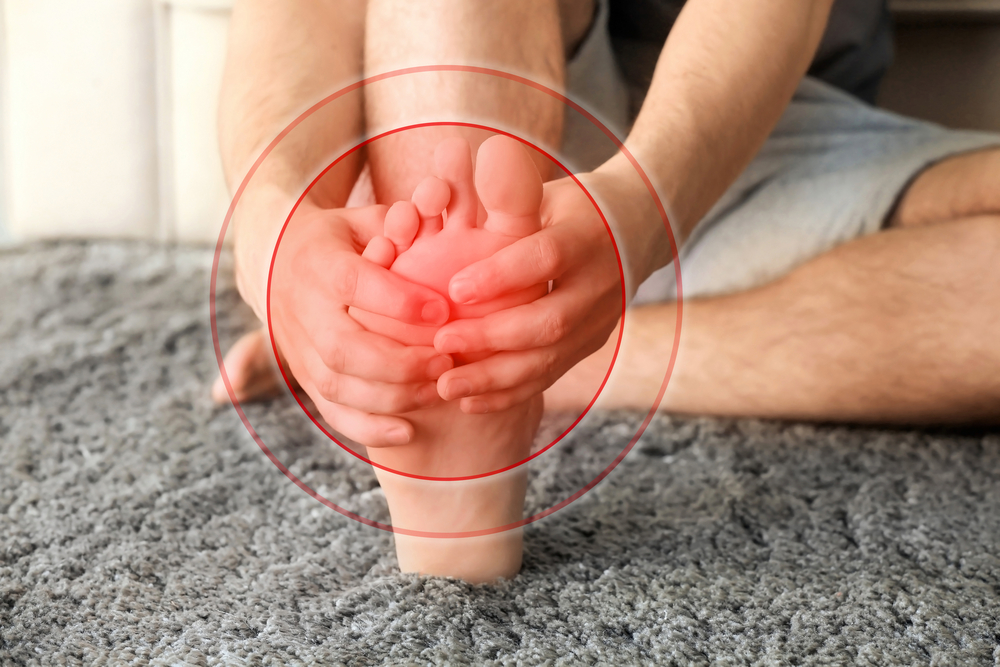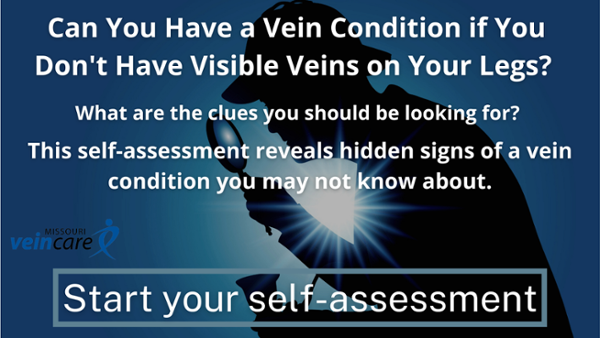What Feet May Be Telling You About Your Health

Don't underestimate the power of your feet to signal health issues. If you regularly experience discomfort such as numbness, coldness, burning, or stinging pains, it's high time to pay extra attention to what your feet are trying to communicate. Such symptoms shouldn't be ignored, as they can be early indicators of various health conditions.
Our feet bear the brunt of our day-to-day activities, supporting our weight and moving us from place to place. While they are often resilient and tough, repeated stress from activities like walking, running, or standing for long periods, as well as illnesses or underlying health conditions, can lead to worrisome symptoms. Importantly, these symptoms can be indicative of more serious health problems such as diabetes, circulatory issues, or nerve damage.
Regularly checking and caring for your feet, maintaining good hygiene, wearing appropriate footwear, and consulting a healthcare professional when you notice persistent issues can help prevent and address potential health problems before they escalate. Remember, your feet are fundamental to your mobility and overall well-being, so don't take their signals lightly.
I see patients every day of the week often associated with vein disease, but sometimes not. What I'm focusing on is trying to find out if I think a vein condition is causing the foot symptoms and if vein treatments will help. As a result of this goal, what I've learned is that there are specifics to the location of the symptoms and the pattern of symptoms that tell me whether a vein condition is the cause and therefore, whether I recommend a vein treatment.
Questions to Help Identify Whether Your Foot Symptoms are Connected to a Vein Condition
Here are a few questions to help you sort out your symptoms and bring your concerns to your provider:
Are your symptoms constant throughout the day?
If they are, this suggests a medical condition such as diabetes, thyroid or liver disease, or nutritional deficiency. It can also be due to neuropathy, which is more likely if you also have similar symptoms in your hands. Start with a conversation with your primary care provider.
Do you have a sensation of something crawling on your skin?
This feeling, termed “formication” (with an 'm'), is often associated with vein reflux and resolves with vein treatments. Formication can be associated with other conditions, but the feeling of crawling insects or bugs in your skin is more prominent at the end of the day, it is highly suggestive of a vein cause - which responds to treatment.
Are the symptoms worse when you start walking but improve after a few minutes of walking?
This suggests arthritis or a condition in your feet or joints. A podiatrist can help evaluate this.
Are your symptoms related to the use of certain shoes or boots?
If so, evaluation for orthotics may help. A podiatrist can assist in this evaluation.
Are the symptoms worse in the middle of the night, and are they relieved when you sit up and dangle your feet over the side of the bed or sit in a chair?
This pattern is associated with advanced artery blockages in the legs. Sitting up helps gravity bring more blood to your feet which reduces discomfort when you have an artery condition. People almost always have pain in their calf when walking. An artery ultrasound and ankle-brachial blood pressure measurement are critical to sort out this issue, and your primary care practitioner can order these tests if appropriate.
Is the foot pain constant and present at the base of the toes?
This can be due to severe artery blockages in the leg and is always associated with calf pain when walking. This is called "rest pain" and predicts that a skin sore will develop in the very near future, so it should be considered an urgent problem. An artery ultrasound with blood pressure measurement is key to sorting this out, and your primary care provider can decide if this is appropriate.
Do you have foot cramps, especially at night?
This is often due to vein reflux and resolves promptly after treatments. A vein screening is a good way to sort this out but will require a vein reflux ultrasound for a specific diagnosis.
Is the pain sharp and stabbing?
This may indicate a neuroma or scar tissue irritating the nerves, often occurring after prior foot surgery. Sometimes an MRI of the foot can show the scar tissue causing the problem. Evaluation with a podiatrist can help.
Do you have constant burning, stinging, and numbness with diabetes?
You may have diabetic neuropathy, which is characterized by symptoms that are the same all day long. They never get better or worse. Controlling your blood sugar can help, and some patients find relief with a B vitamin supplement Metanx, which can be tried on a 3-month trial basis. Metanx is designed to have greater absorption in your intestinal tract than regular vitamins.
Are you experiencing constant burning, stinging, numbness, and tingling?
This can be due to a vitamin B deficiency, and taking supplements may help. It may also be neuropathy. An evaluation by a neurologist is recommended.
Are your foot symptoms worse with swelling in your feet and legs?
Controlling the swelling can improve the situation. Common causes include summer heat, excess salt, lymphedema, and vein reflux. Less common causes are heart or kidney disease. Swelling associated with vein reflux always goes away overnight and improves with vein treatments.
Is the burning, stinging, numbness, cold feet, or tingling worse at the end of the day?
This pattern is typical with vein reflux and will improve with treatment. Vein reflux is the only condition that causes this pattern of worsened symptoms in the evening, and it predicts relief with treatments. The symptoms of a vein condition are often associated with other calf symptoms such as nighttime cramps, restless legs, calf swelling, or aching.
Indicators that Your Foot Symptoms May NOT Be a Vein Condition
On the other hand, if you experience similar symptoms in your hands or if the symptoms are constant throughout the day—present when you wake up and unchanged by the evening—it is likely not a vein condition. This scenario suggests a different issue, such as neuropathy. Neuropathy involves the nerves in the periphery and is generally a more persistent and unchanging condition.
It is probably NOT a vein condition if:
- The burning, stinging, itching, or tingling sensation is present when you awaken and lasts all day
- Your hands are also affected by burning, stinging, itching, and tingling.
For those whose symptoms intensify in the evening, including experiences of cold feet, vein treatments often provide relief. However, before jumping to treatments, it's vital to confirm whether you indeed have a vein condition. This is easy to do with a vein reflux ultrasound.
There is Hope
From my perspective as a vein care specialist, it is incredibly rewarding to see how treating vein conditions can transform a person's life. The relief from night-time foot symptoms and the subsequent improvement in sleep quality is life-changing.
If you're experiencing symptoms like numbness, tingling, or cold feet, especially if these symptoms worsen at night, don't ignore them. These could be signs of an underlying vein condition that, when treated, results in dramatic relief of symptoms and enjoyment of life.




